So, you’re planning a trip to France? That’s exciting Whether you’re strolling through the romantic streets of Paris, exploring the vineyards of Bordeaux, or relaxing on the beaches of Nice, there’s one thing that can make your travel experience even better — knowing a few useful French phrases.
I know, speaking a new language can feel intimidating, especially when you’re just visiting. But trust me, even learning simple words like bonjour or merci can completely change how locals interact with you. They appreciate the effort, and it makes you feel more connected to their culture.
This guide is specially written for travelers like you — people who want to enjoy their journey without language barriers. So, let’s dive into some essential French phrases that’ll help you sound confident, polite, and travel like a pro.
Why It Matters 🗣️
Learning useful French phrases for travel isn’t just about communication—it’s about connection. Imagine walking into a Parisian café, smiling, and saying, “Bonjour, un café s’il vous plaît.” That simple gesture instantly warms up the atmosphere. You’re not just another tourist; you’re a traveler who respects the culture.
In many parts of France, locals appreciate even a small effort to speak their language. It can open doors to friendly conversations, better service, and insider tips.
Beyond that, knowing a few French travel phrases can help you:
- Navigate public transport easily
- Order food confidently in restaurants
- Ask for help when you’re lost or stuck
- Handle emergencies calmly
- Experience local life authentically
Whether you’re strolling through Paris, hiking in the Alps, or exploring vineyards in Bordeaux, these French phrases will be your best travel buddies.
Greetings & Polite Expressions 👋
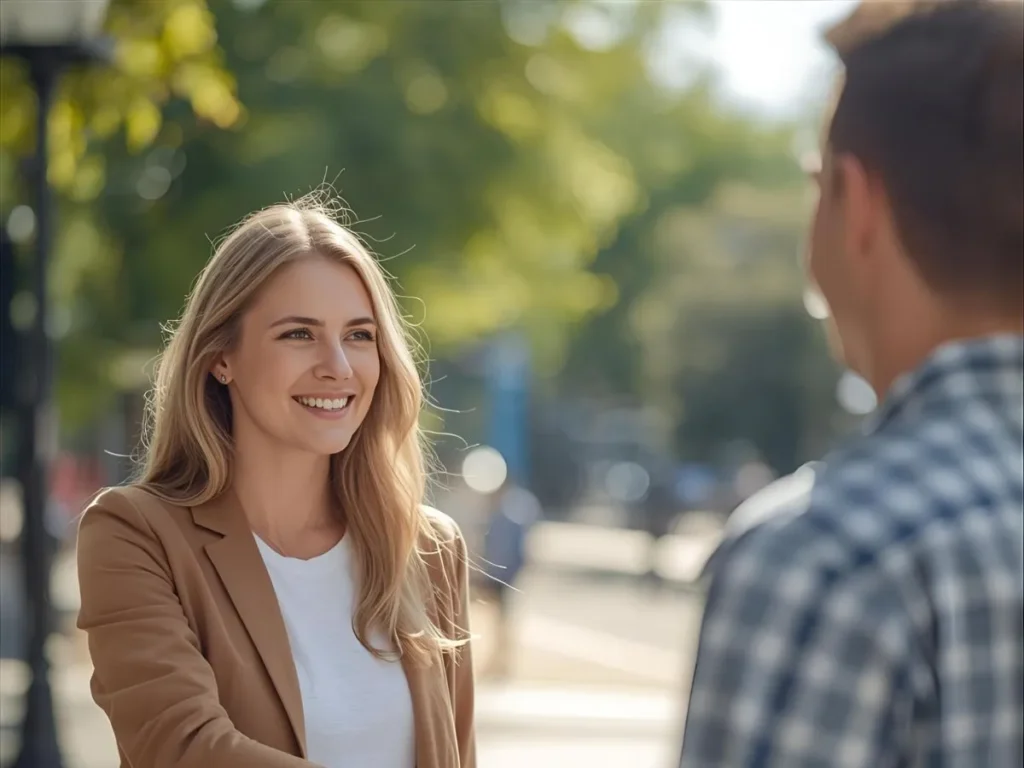
Politeness goes a long way in France. Start with these simple greetings and polite phrases to make every interaction smooth.
Bonjour / Bonsoir (Hello / Good evening)
A must-know! Use “Bonjour” during the day and “Bonsoir” in the evening.
Use When: Greeting anyone—shopkeepers, waiters, or locals.
Example: “Bonjour, Madame! Comment allez-vous?” (“Hello, Ma’am! How are you?”)
Merci / Merci beaucoup (Thank you / Thank you very much)
Gratitude is universal—use it often!
Use When: Someone helps or serves you.
Example: “Merci beaucoup pour votre aide!” (“Thank you very much for your help!”)
S’il vous plaît / S’il te plaît (Please)
Essential for polite requests. “S’il vous plaît” is formal; “S’il te plaît” is casual.
Use When: Asking for something politely.
Example: “Un billet pour Paris, s’il vous plaît.” (“A ticket to Paris, please.”)
Au revoir / Bonne journée (Goodbye / Have a nice day)
End your conversation warmly.
Use When: Leaving a shop, restaurant, or meeting.
Example: “Au revoir! Bonne journée!” (“Goodbye! Have a nice day!”)
At Restaurants & Cafés 🍽️
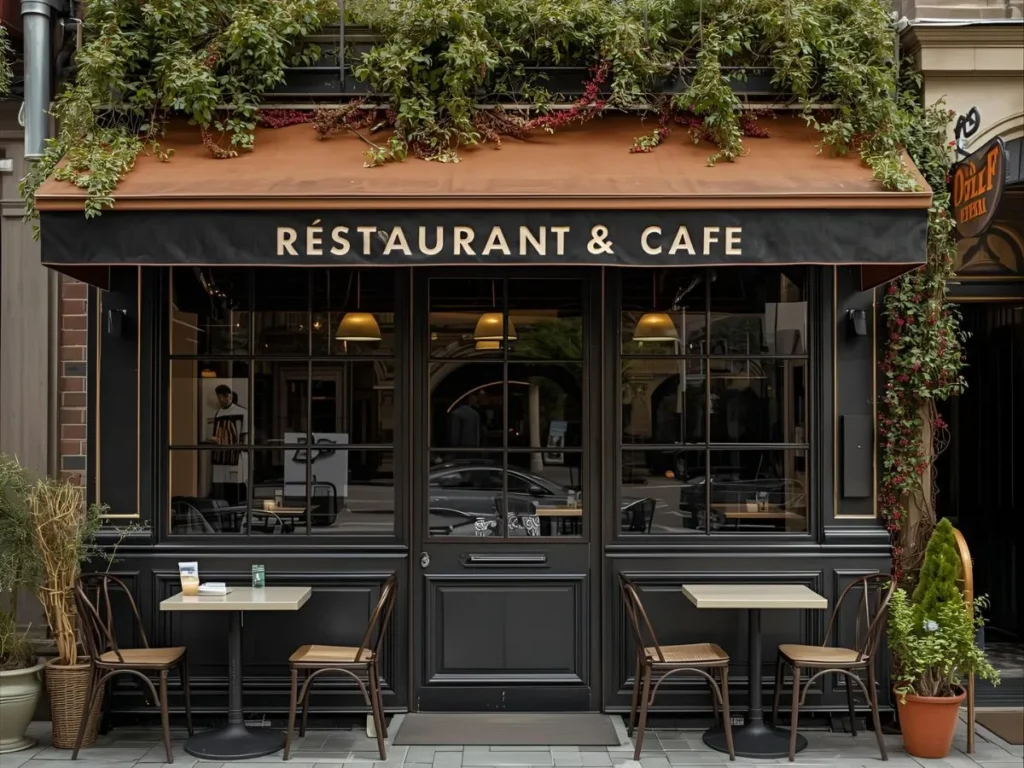
Food is the heart of French culture! These phrases will help you order like a local.
Je voudrais… (I would like…)
A polite way to order.
Use When: Ordering food or drinks.
Example: “Je voudrais un croissant et un café.” (“I would like a croissant and a coffee.”)
L’addition, s’il vous plaît (The bill, please)
Perfect for when you’re done eating.
Use When: Asking for the check.
Example: “L’addition, s’il vous plaît.” (“The bill, please.”)
C’est délicieux! (It’s delicious!)
Compliment the chef—always appreciated.
Use When: Enjoying your meal.
Example: “C’est délicieux! Mes compliments au chef.” (“It’s delicious! Compliments to the chef.”)
Avez-vous un menu en anglais? (Do you have a menu in English?)
Helpful if you’re struggling to understand the menu.
Use When: You need an English translation.
Example: “Avez-vous un menu en anglais, s’il vous plaît?” (“Do you have a menu in English, please?”)
Directions & Transportation 🚆
Traveling around France? These phrases will help you navigate like a pro.
Où est…? (Where is…?)
Ask for any location with this phrase.
Use When: Finding a place.
Example: “Où est la gare?” (“Where is the train station?”)
Combien coûte un ticket? (How much is a ticket?)
Great for budgeting your transport costs.
Use When: Buying tickets.
Example: “Combien coûte un ticket pour Lyon?” (“How much is a ticket to Lyon?”)
Je veux aller à… (I want to go to…)
State your destination.
Use When: Talking to a taxi driver or bus attendant.
Example: “Je veux aller à l’aéroport.” (“I want to go to the airport.”)
C’est loin? (Is it far?)
Find out if walking is worth it.
Use When: Asking about distances.
Example: “C’est loin de l’hôtel?” (“Is it far from the hotel?”)
Shopping & Markets 🛍️
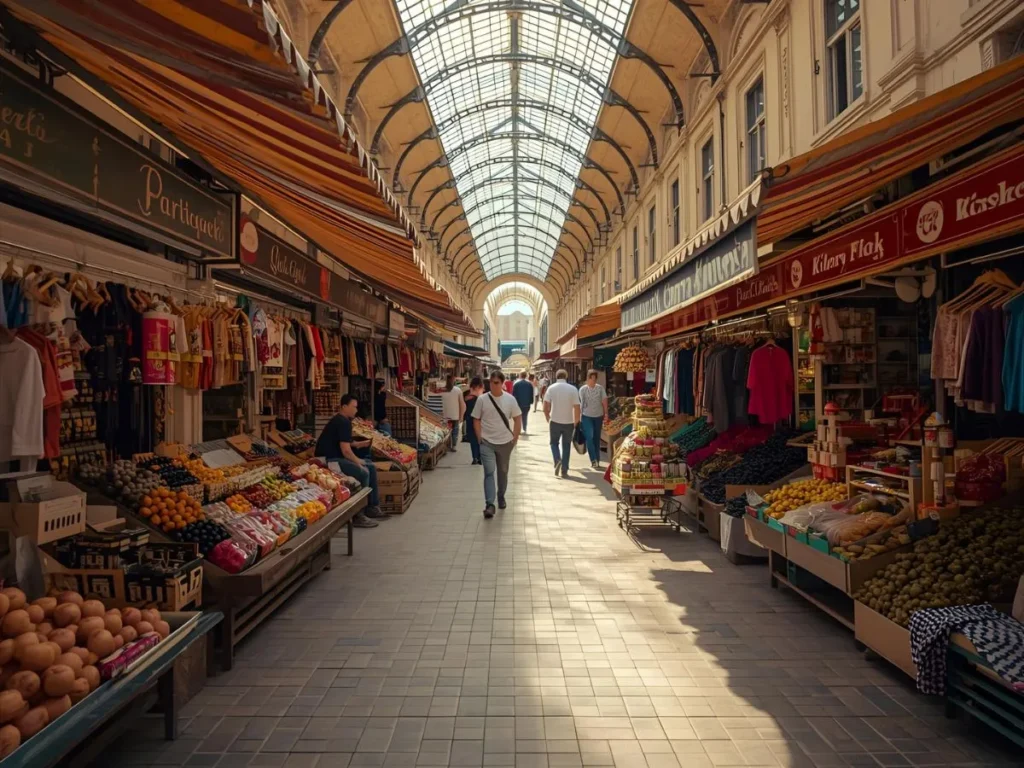
Shopping in France is an experience! Learn how to ask questions politely.
Combien ça coûte? (How much does it cost?)
Essential for any shopping situation.
Use When: Asking about prices.
Example: “Combien ça coûte, cette robe?” (“How much does this dress cost?”)
Je regarde seulement (I’m just looking)
Useful when browsing.
Use When: Avoiding pressure from sellers.
Example: “Merci, je regarde seulement.” (“Thanks, I’m just looking.”)
Avez-vous une autre taille? (Do you have another size?)
Helpful when shopping for clothes.
Use When: Asking for a different size.
Example: “Avez-vous une autre taille en bleu?” (“Do you have another size in blue?”)
Hotels & Accommodation 🏨
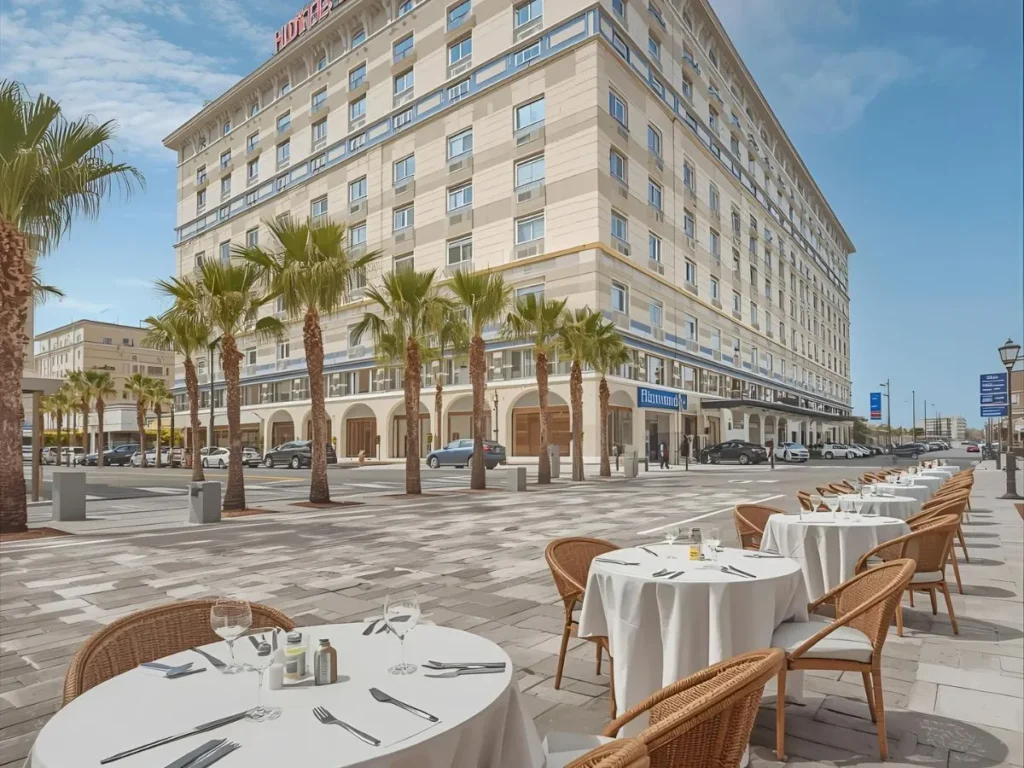
Checking in or asking for services? These hotel-related phrases will make your stay easy.
J’ai une réservation (I have a reservation)
Your check-in go-to phrase.
Use When: Arriving at your hotel.
Example: “Bonjour, j’ai une réservation au nom de Ali.” (“Hello, I have a reservation under the name Ali.”)
À quelle heure est le petit-déjeuner? (What time is breakfast?)
Always important to know!
Use When: Asking about meal times.
Example: “À quelle heure est le petit-déjeuner, s’il vous plaît?” (“What time is breakfast, please?”)
Pouvez-vous m’aider? (Can you help me?)
Polite and versatile.
Use When: Asking for any assistance.
Example: “Pouvez-vous m’aider avec mes bagages?” (“Can you help me with my luggage?”)
Emergencies & Health 🚑
In emergencies, knowing what to say matters most.
Appelez une ambulance! (Call an ambulance!)
Use this in serious situations.
Use When: Someone is hurt or sick.
Example: “Appelez une ambulance, vite!” (“Call an ambulance, quickly!”)
J’ai besoin d’un médecin (I need a doctor)
Simple and essential.
Use When: You’re not feeling well.
Example: “J’ai besoin d’un médecin, s’il vous plaît.” (“I need a doctor, please.”)
J’ai perdu mon passeport (I lost my passport)
Crucial for travelers.
Use When: At a police station or embassy.
Example: “J’ai perdu mon passeport à la gare.” (“I lost my passport at the station.”)
Social & Everyday Talk 💬
Want to chat casually with locals? These simple phrases help you make friends.
Comment ça va? (How are you?)
Friendly and common.
Use When: Starting a casual conversation.
Example: “Salut! Comment ça va?” (“Hi! How are you?”)
Je suis en vacances (I’m on vacation)
Perfect small talk phrase.
Use When: Talking about your trip.
Example: “Je suis en vacances à Paris.” (“I’m on vacation in Paris.”)
C’est magnifique! (It’s beautiful!)
Express admiration for places or things.
Use When: Complimenting sights or experiences.
Example: “La Tour Eiffel, c’est magnifique!” (“The Eiffel Tower—it’s beautiful!”)
Bonus Recap Table 📋
| Category | French Phrase | Meaning | Use When | Example |
|---|---|---|---|---|
| Greetings | Bonjour | Hello | Greeting locals | Bonjour, Madame! |
| Restaurant | Je voudrais… | I would like… | Ordering food | Je voudrais un café. |
| Travel | Où est…? | Where is…? | Asking for directions | Où est la gare? |
| Shopping | Combien ça coûte? | How much does it cost? | Buying items | Combien ça coûte, cette robe? |
| Hotel | J’ai une réservation | I have a reservation | Checking in | J’ai une réservation au nom de Ali. |
| Emergency | Appelez une ambulance! | Call an ambulance! | In emergencies | Appelez une ambulance, vite! |
| Social | Comment ça va? | How are you? | Talking casually | Salut! Comment ça va? |
Final Thoughts 🌍
Learning useful French phrases for travel is one of the best ways to prepare for your trip. Even if your accent isn’t perfect, locals will appreciate your effort—and you’ll feel more at ease wherever you go.
Start small. Practice key phrases daily, listen to how natives pronounce them, and try them out whenever you can. Soon, you’ll be ordering croissants, chatting with shopkeepers, and navigating cities like a true traveler, not just a tourist.

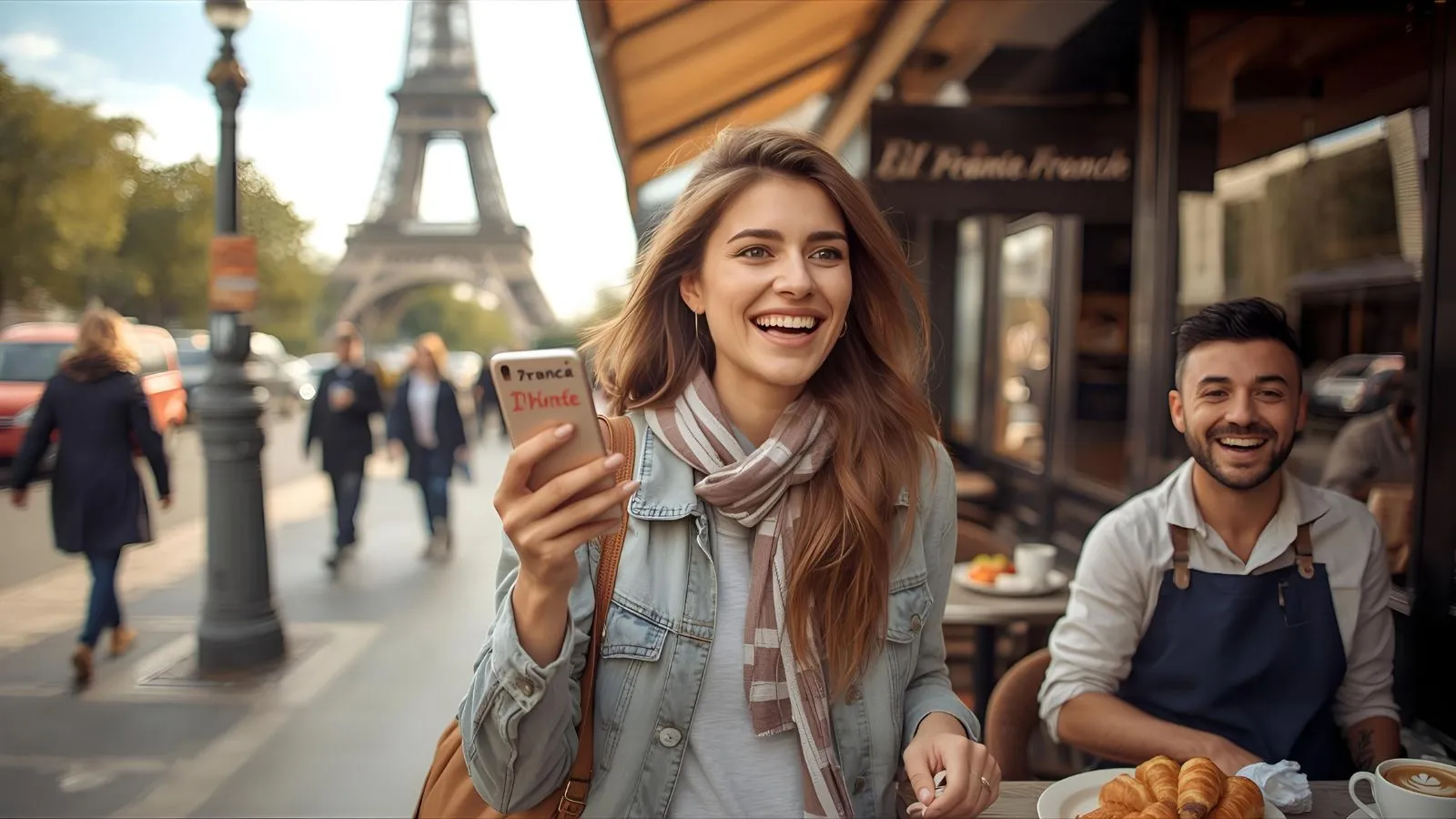
Leave a Reply